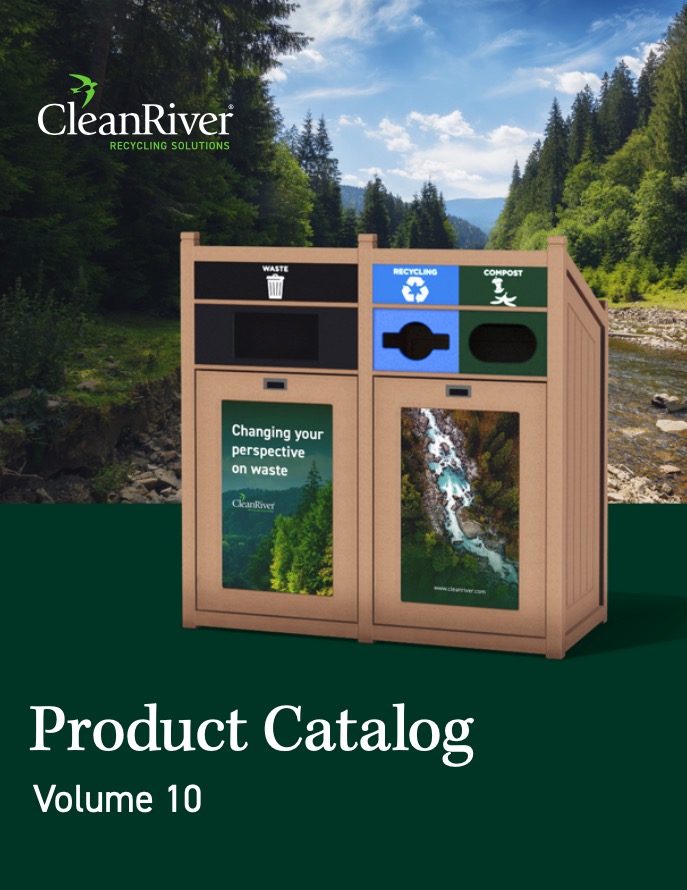Share
Disposable waste is bad for the environment, plain and simple. Most of the products we purchase come with packaging and materials that end up in landfills, or worse (like the stomachs of wildlife or our water sources). Sometimes the over-reliance on recycling encourages people to live less sustainably. Even though the main purpose of a recycling program is to reduce or eliminate waste.
Despite this problem… there are still many environmental benefits of recycling. CleanRiver recycling solutions has over 30 years of experience helping our clients improve their recycling habits. Sometimes it’s as simple as teaching people which items are recyclable. In this blog we will be covering 10 environmental benefits of recycling the following materials:
1. Plastics
For the uninitiated, plastic is by far the best thing you can recycle to save our planet.
“While so many plastic products are disposable, plastic lasts forever in the environment. It was the plastics industry that offered recycling as a solution.”
Not recycling plastic is harmful for the environment, mostly due to the fact that plastic takes forever to break down. Even when it does, it creates micro-plastics that are small in size which easily get into all sorts of places it shouldn’t be. PET and HDPE are the most commonly recycled plastics, whereas the other types are generally tougher to recycle.You can tell what type of plastic it is by using the number scale from 1-7 found labeled on your plastic products.
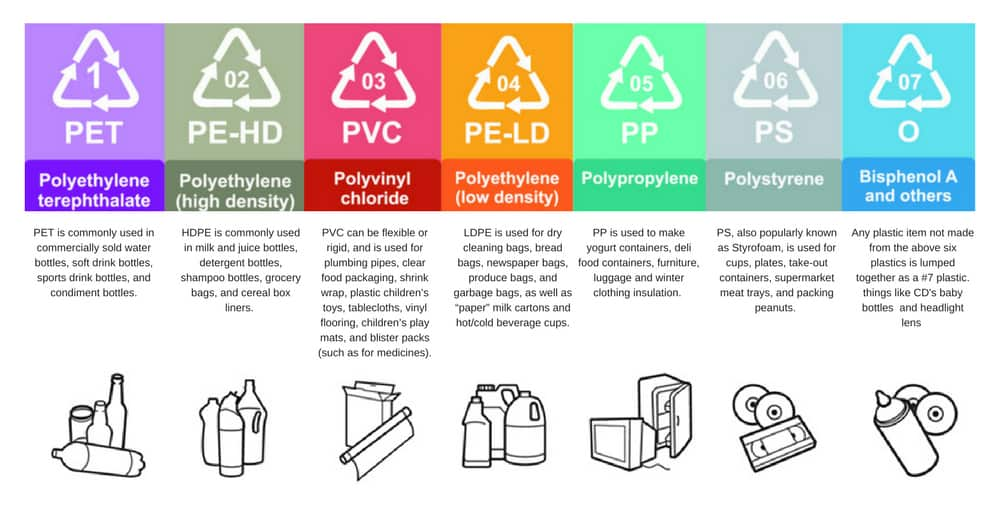
PET is labelled as #1 and is the most commonly recycled plastic. If you often drink water from plastic bottles then you should definitely be using a commercial recycling bin at work to collect your plastic waste. HDPE (#2) is the second most commonly recycled form of plastic. If you don’t already have a commercial recycling bin, then you’ll be happy to know that CleanRiver’s are actually made from recycled HDPE.
2. Paper
Paper waste isn’t necessarily as bad for the environment as plastic, but the benefits of recycling paper are worth the effort. Books, newspapers, and even glossy magazines can be recycled in your outdoor recycling bins at home. As for the office (where you’re the most likely to have excess paper waste) throwing your paper into a dedicated office recycling bin is just as good. If your office doesn’t already have an easy way to recycle paper, consider setting up an office recycling program. Don’t forget about fibreboard, paperboard, and cardboard either.
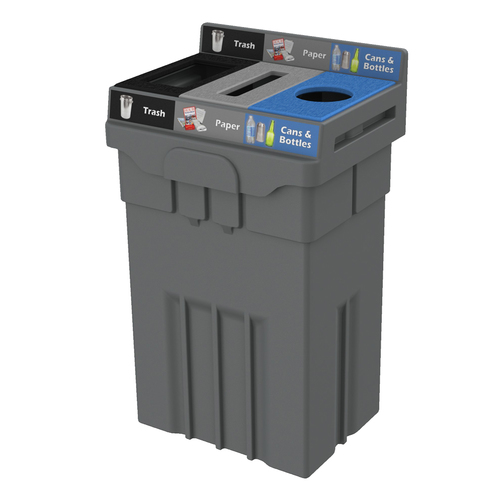
3. Glass
If you didn’t already know this, glass is made from sand. Now that may seem redundant but the world is actually running out of sand. The whole point of recycling recycling is to help the environment and reduce resource consumption. So what better way to save sand than to conserve it via glass recycling? It’s also one of the easier materials to recycle! Don’t throw out those empty beer bottles.
4. Electronics
If you didn’t already know, most electronic waste contains recyclable materials that can be harmful for the environment if left to sit in a landfill. If you need help identifying e-waste and would like to prevent improper electronic waste disposal, please click here.
5. Metals
Metal can be found in a variety of products, such as the previously mentioned e-waste. Metal must be mined from the earth, which damages the area and environment those mines are dug.
Most recycling programs will teach you the different kinds of metal that can be recycled, because we use disposable metal products every day. The good news is most metals can be recycled together as recycling plants will sort them for you. Some local businesses can recycle scrap metal for you as well if needed.
Commercial recycling bins with effective recycling graphics can label a section of their recycling bin for cans and other metals if needed. Next time you crack open a sparkling beverage, or eat a can of soup… be sure to recycle those steel and aluminum containers!
6. Batteries
Technically batteries can be considered e-waste, and metal waste. The difference is batteries don’t go in the recycling bin OR the garbage bin. That doesn’t mean batteries can’t be recycled though. The chemicals that can leak out of them are extremely harmful to the planet, and can contaminate other waste that would otherwise be recyclable. Therefore they need to be recycled separately from all other forms of waste. For more information on how to safely dispose of lithium-ion batteries, click here.
7. Tires
Car tires, and other commercial rubber materials found in various products are difficult to recycle. And unfortunately most rubber products are burned, even when they’re properly discarded (which is horrible for the planet). At the very least you can search for a recycling facility that specifically takes care of tires. They can retread the tire, or dispose of it in a way that won’t poison the Earth.
8. Clothing
Textile recycling is less common than one would hope, which is unfortunate for the environment because they take several hundred years to break down. To recycle clothing, check your local mall or retailers as they often have bins where you can donate your used and unwanted textiles. Better yet, some thrift stores may even pay you a small amount of money for your old clothes.
9. Organic Materials
Organic waste is actually good for the planet and rarely harms it. That being said, the environmental benefits of recycling biodegradable waste (like food) in a specific container is worthwhile. Making compost is simple, all it requires is an organic waste bin and time. Then that compost can be used for planting, gardening, and more! What goes in the compost bin? Click here to find out.
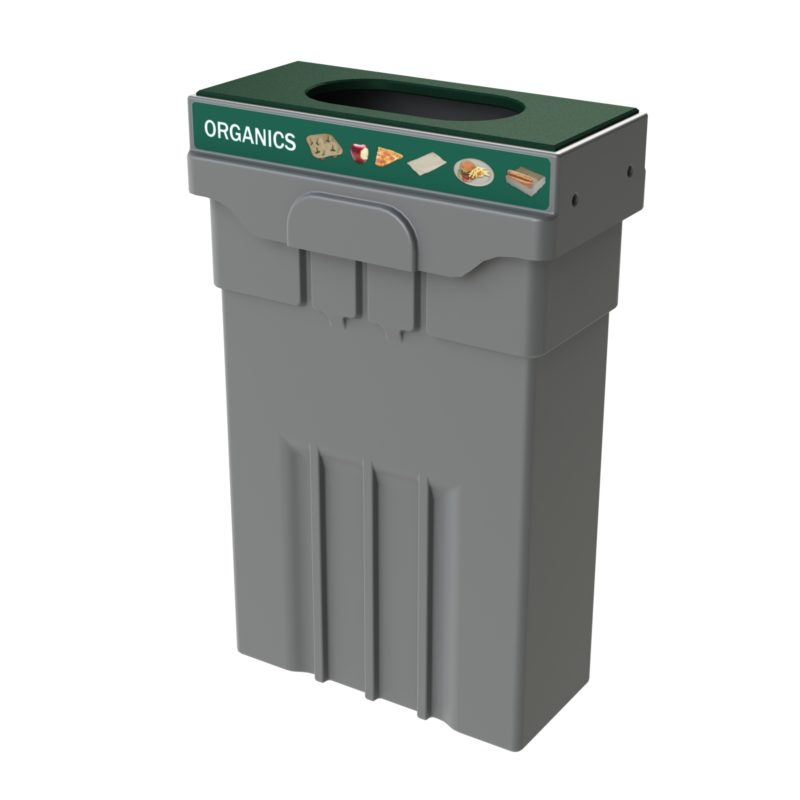
10. PPE & Medical Waste
Is PPE recyclable? (If you click that link you’ll get the answer). What about medical waste? Where does hospital waste go? These materials may not have been as harmful for the environment outside of a hospital setting in the past. However, the pandemic made the lack of hospital recycling programs and proper PPE disposal a big issue.
I’m sure you’ve seen a few disposable masks lying around the neighbourhood which can be extremely harmful to wildlife. Recycling medical waste is much more expensive (especially red bag waste). Unfortunately, this higher price tag often means that recyclable materials get thrown out with regular trash anyway. If you or someone you know works at a hospital, consider starting a hospital recycling program to combat the negative effects medical waste has on the planet.
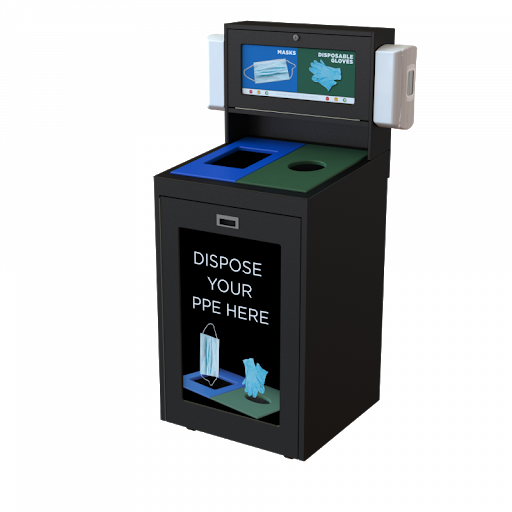
Which Items Are Recyclable?
90% of the previously mentioned items benefit the environment when recycled, but they require a bit of research to fully understand how to properly dispose of the recyclable materials. For instance, paper was mentioned as one of the best things to recycle – but it cannot be recycled if it’s wet. For more examples, learn about 8 items that you may think are recyclable but really aren’t!
Looking for more green recycling tips? Check out these other blogs:
- What Are Biodegradable Garbage Bags Made Of?
- 3 Ways to Reduce Waste and Save Money During the COVID-19 Pandemic
- 6 Best Items To Recycle For Money: Trash For Cash
CleanRiver Recycling provides a variety of innovative, flexible, and customizable recycling solutions. To determine the right solution to meet your needs, use the CleanRiver product selector.
If you have additional questions that weren’t answered in this blog post please call us at 1-866-479-4038 or email solutions@cleanriver.com.


